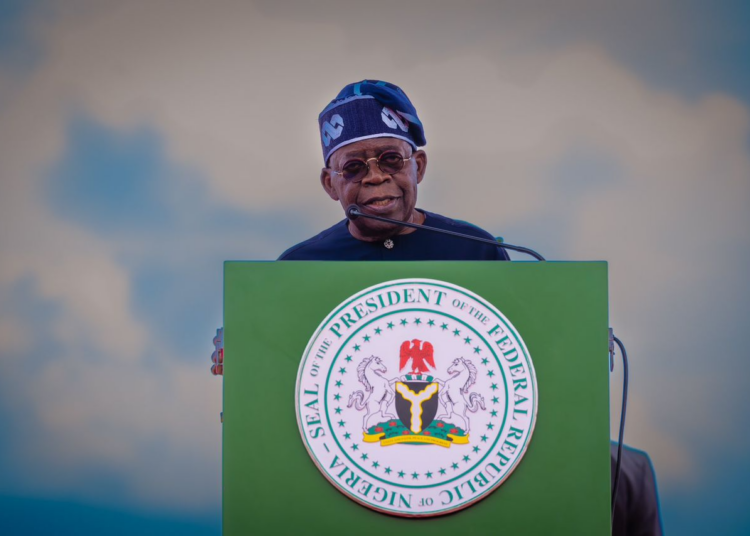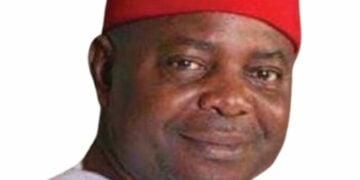President Bola Tinubu’s New Year message reads like a carefully crafted symphony of hope, but let’s look beyond the rhetoric and examine what’s really on the table.
The president’s comprehensive outline of his plans for 2025 presents an interesting mix of bold promises and pragmatic initiatives.
First, that ambitious promise to slash inflation from 34.6% to 15% by year-end caught my attention. Ambitious? Absolutely. Realistic? Well, that’s where things get interesting. While I appreciate the president’s optimism, achieving such a dramatic reduction in 12 months would be nothing short of economic wizardry. It’s like promising to turn a truck around on a narrow bridge – technically possible but requiring extraordinary skill and favorable conditions.
Let’s be honest – inflation isn’t just a number you can dial down like a radio volume. It’s deeply rooted in structural issues that have plagued our economy for decades. The president’s message conveniently skips over the nitty-gritty of how exactly this magical reduction will happen. Will it be through monetary policy? Fiscal measures? Or perhaps some combination of both? The details matter, and they’re conspicuously absent.
However, I must give credit where it’s due. The planned National Credit Guarantee Company is a smart move. Access to credit has been the Achilles’ heel of many Nigerian businesses, and any initiative to address this deserves attention. The partnership between government institutions, private entities, and multilateral organisations suggests a well-thought-out approach. But again, the devil will be in the implementation details.
What really caught my eye was Tinubu’s meeting with the governors. His statement that governors control 65-70 percent of allocated revenue is spot on, but it also raises an important question: Why do we keep looking to Abuja for solutions when the real power to transform Nigeria lies in the states? It’s like asking the coach to win the match when the players are on the field.
The president’s emphasis on agricultural productivity and local government autonomy shows he understands where the real battlegrounds are. But here’s the thing – we’ve heard similar tunes before. Remember all those agricultural transformation agendas of previous administrations? How many of them translated into food security or lower prices at the market?
Speaking of local government autonomy, the president’s assurance to governors that “nobody wants to take them away from you” is quite revealing. It’s basically saying, “Keep your local governments, but please make them work.” It’s political pragmatism at its finest, but will it deliver the grassroots development we desperately need?
The proposed Youth Conference in the first quarter sounds promising, but haven’t we seen enough talk shops? What we need is action, not another conference where young people will gather to discuss the same old problems with no concrete outcomes. The ministry’s forthcoming modalities for selecting representatives will be crucial – will it be truly inclusive or just another exercise in tokenism?
Then there’s this National Values Charter business. Nice idea, but can we really legislate patriotism? You can’t force people to love a country that isn’t working for them. Fix the basics – security, economy, infrastructure – and patriotism will follow naturally. It’s like trying to make someone fall in love through a written contract.
What I find particularly interesting is the careful balancing act in Tinubu’s message. He’s trying to maintain hope while acknowledging the pain of reforms. It’s like telling someone, “The surgery hurts, but you’ll thank me later.” The question is: Will Nigerians have the patience to wait for this promised later? With the cost of living soaring and essential commodities becoming luxury items, that’s a big ask.
The ThisDay Man of the Year endorsement and the governors’ vocal support show that the political class is rallying behind Tinubu’s reforms. Governor Abdulrahman Abdulrazak’s comment about bumper harvests and currency strength is particularly interesting. But the real endorsement that matters will come from the markets, the streets, and the dinner tables of ordinary Nigerians.
The president’s announcement of state visits, starting with Enugu, is a welcome development. It’s one thing to sit in Abuja and another to see firsthand how policies impact local communities. These visits should be more than just ceremonial – they should inform policy adjustments and implementation strategies.
The National Assembly’s support, as expressed by both Senate President Godswill Akpabio and Speaker Tajudeen Abbas, suggests a harmonious relationship between the executive and legislative branches. While this is good for governance, we must hope it doesn’t mean rubber-stamp legislation. Robust debate and scrutiny are essential for democracy.
As we navigate through 2025, one thing is clear: Tinubu’s administration is betting big on these reforms paying off. The president’s confidence is admirable, but Nigerians have learned to take political promises with a generous pinch of salt. We’ve been promised the promised land before, only to find ourselves wandering in the desert of unfulfilled expectations.
The proof of this pudding will be in the eating. Will we see reduced food prices? Will the Naira stabilise? Will youth unemployment decrease? Will security improve? These are the metrics that matter to the average Nigerian, not the eloquent promises or grand visions.
Time will tell if these New Year promises will translate into tangible improvements in Nigerian lives. For now, let’s hope that the administration’s economic calculations are as solid as their political messaging. After all, hope is good, but results are better. And in 2025, Nigerians will be watching, not just for the promise of change, but for its actual delivery.





